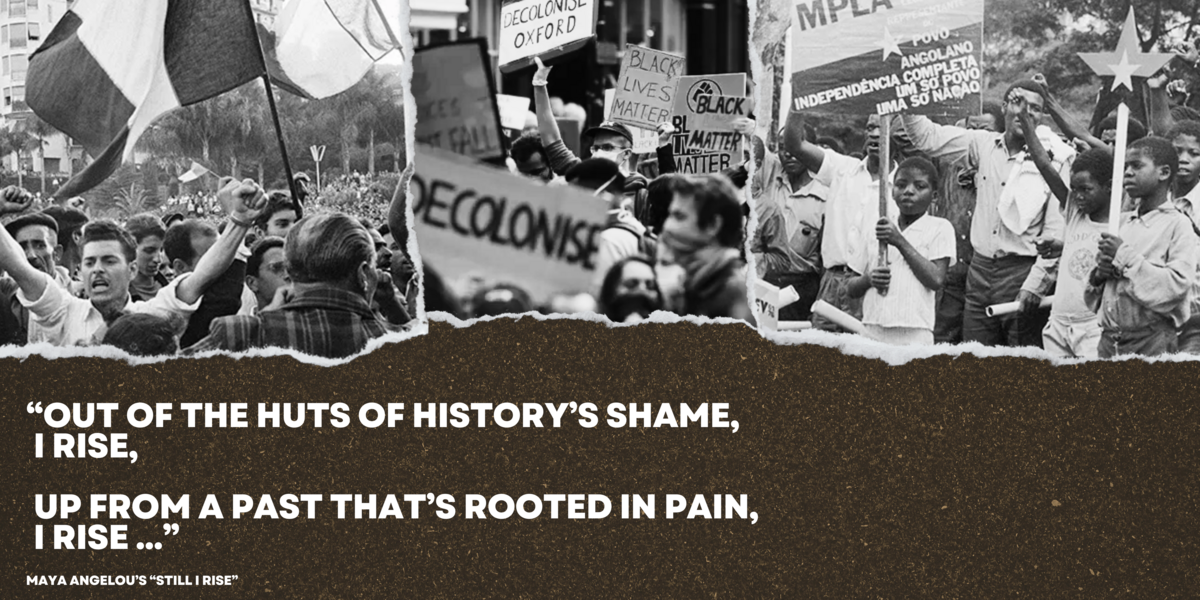
The workshop aims to probe the complexities embedded in the processes of ‘decolonisation’. The term could be loosely defined as the end of rule by a colonial power and the formation of sovereign nation states (in most cases) based on a transfer of power. However, this definition could be limited in terms of assessing the long-term implications of colonialism for ordinary people. In most cases, such transfers of power do not really alter the hierarchical contexts of their lives. Even as they become citizens of a ‘new’ nation state, they continue to struggle against the upper caste/class, majoritarian, racial, ethnic and patriarchal biases embedded in the institutions of these states.
Decolonisation, thus, entails that we remain vigilant to renewed subjugations when they get entwined with global capital to forge a hegemonic structure of what Walter Mignolo (2018) calls “the colonial matrix of power.” It alerts us to ways in which this matrix creates and enforces a regime of domination, management and control of the Global South and its indigenous resources. Furthermore, a critical re-engagement with the processes of decolonisation and decoloniality could help us re-forge relations between the global North and South. It could underscore the disparate ways in which the European nations were complicit in the task of colonial plunder, that eventually made them what they are today. This realisation, then, would usher in newer modes of aesthetic alliances whereby European scholarship widens its ambit to acknowledge the lessons from the anti-colonial movements of the global South.
Considering this, the workshop will probe the concept and processes of decolonisation from the following perspectives:
Decolonisation as social justice.
How to re-write European colonialisms to facilitate epistemic decolonisation?
How to forge transnational solidarities to defy the colonial matrix of power?
Re-covering affective linkages and epistemic flows from the global South to North.
Making(s) and Unmaking of internal colonialism.
Universities as sites of social transformations and decolonisation.
Monday March 31st
12:15 - 13:30 | Lunch, Registration & Welcome |
13:45 - 14:45 | Panel 1 Global South Redux: Thinking through Markets in Uncertain Time |
15:00 - 16:15 | Panel 2 The Ambivalences that Surround Us & Decolonizing Danish: Unmaking the Linguistic Epistemologies of Eurocolonial Orders |
Tuesday April 1st
09:30 - 10:45 | Panel 3 Minor and Major Tech – Cree# and the colonial drives of networked computing. & The Bench and the Welfare State: Decolonial Perspectives on Public drinking among Socially Marginalized Greenlanders living in Denmark |
11:00 - 12:15 | Panel 4 Indigenous Nationalities: Religious and Political Development of the Ādivāsī Janajāti in Nepal & The Dalit Politico-Aesthetic(s) and Question of Solidarity: A Re-reading of Select Anti-caste and Dalit fiction |
12:15 - 13:15 | Lunch |
13:15 - 14:00 | Panel 5 Beyond Metaphors: Grounding Decoloniality in Action and Pedagogy |
14:30 - 15:45 | Panel 6 Accessing, claiming and narrating culture in African and European performance training & A Collaborative Ethnography as an Approach to Identify “Decolonial Spaces” in the Establishment of the exhibition “Inuit Dimensions” in rum46 |
15:45 - 16:00 | Concluding Remarks |
The workshop is open and free for all interested. Registration is required to attend the workshop. Please sign up here by 28 March 2025.
Bharti Arora, AIAS-AUFF Fellow, barora@aias.au.dk